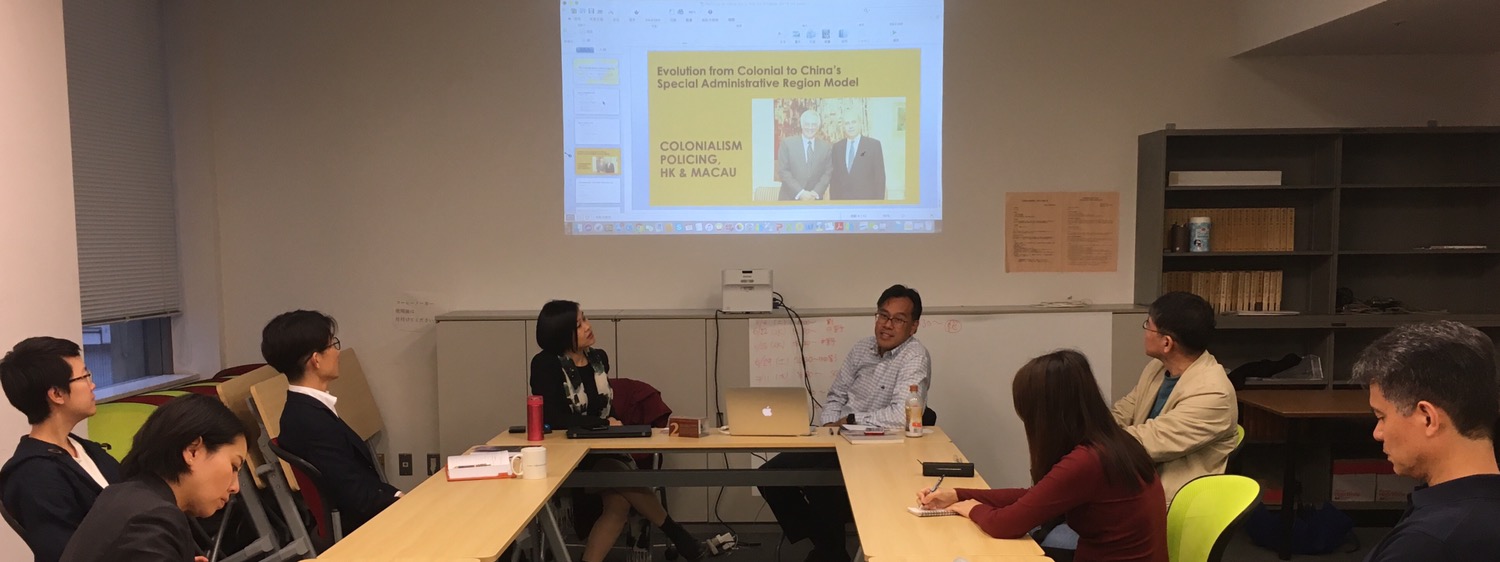On June 10, 2019, Waseda University’s Global Asia Research Center hosted a workshop entitled “Policing in Hong Kong and Macau: Evolution from Colonial to China’s Special Administrative Region Model.” Dr. Lawrence Ka Ki Ho and Prof. Agnes I.F. Lam delivered their research presentation based on the approach of historical comparative studies. They noted the shared experience of European colonialism that influenced conditions in the two coastal cities.
First, Dr. Ho explained the characteristics of the Hong Kong police force and the historical framework of policing in Hong Kong. Hong Kong’s police force was established in 1844 by the U.K and was highly centralized and coercive. Hong Kong’s police were culturally segregated from the local Chinese community. However, there were three major turning points of transformation- 1945, 1967, and 1980. After these time periods, Hong Kong’s police became depoliticized, interacted with the local Chinese community, and underwent internationalization.
Next, Prof. Lam focused on policing in Macau. She started by mentioning that the policing of Macau was not widely studied because of a lack of interest from both Portuguese and the local Cantonese population. However, Macau drew attention from the criminologists and Interpol regarding syndicated crime. Unlike the UK’s policing in Hong Kong, Portuguese authorities in Macau used a militarized approach. Macau operated a dual policing system (security and judiciary) from 1960 to 1999. These two forces sometimes engaged in conflicts over the distribution of power. It was a system that was rare and unique in China and Asia. The influence of the military dictatorship in Portugal and the language barrier resulted in a high level of segregation between the Portuguese and Chinese communities.
After the presentation, scholars and students actively engaged in a lively discussion about how this research can be contributed to diverse areas of studies. The presenters elaborated historical background of policing in Hong Kong and Macau and the similarities and differences in their police activities. There was also a discussion of policing in Japan and how the meaning and role of policing could be compared.

